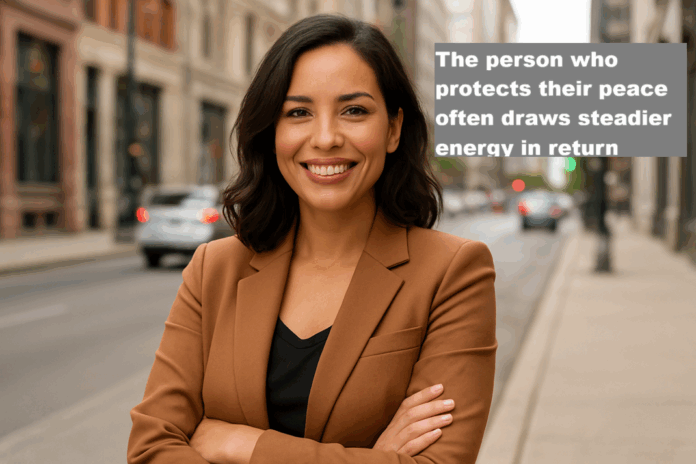Let me be bold right up front: you don’t need to change who you are to find love — you need to sharpen your clarity, strengthen your boundaries, and polish how you present your true self.
Imagine this: you’re chatting with someone you like. The conversation flows, the vibes are good, and there’s a spark. But then — a hesitation. You wonder: Should I text first? How soon should I open up? What’s too much, and what’s too little?
If those questions feel familiar, you’re in good company. Dating in this digital age is a dance between vulnerability and self-protection, between authenticity and strategy. The good news: there are tested, real-world dating tips for women that can empower you to step into your relationships with confidence, clarity, and heart.
In this article, you’ll get 47 actionable dating tips (not recycled fluff) grounded in psychology, real stories, and cultural awareness. These are evergreen — relevant whether you’re in your 20s, 30s, 40s, or beyond, and whether you’re dating in New York, Lagos, or anywhere in between.
Let’s dive in — your best version of dating starts here.
What “Dating Tips for Women” Really Means
When people say “dating tips for women,” they often mean advice targeted to issues women face more frequently (e.g. social expectations, safety, communication dynamics). But these tips can (and should) be inclusive and adaptable for all genders.
Here’s what a high-value “dating tips for women” guide should aim to do:
- Empower you to make choices aligned with your values
- Help you balance assertiveness and sensitivity
- Guide you to signal attraction without losing your sense of self
- Equip you with emotional tools (boundaries, resilience)
- Give you conversational scaffolding (questions, story cues)
In other words: this isn’t about “tricks to get someone to like you.” It’s about helping you show up authentically, protect your self-worth, and navigate the dating journey with wisdom.
The Psychology Behind Dating Dynamics
To date well, it helps to understand a few psychological patterns that repeat in relationships.
1. Attachment Styles — What They Reveal
In psychology, attachment theory says we internalize patterns of how we connect (secure, anxious, avoidant, disorganized). A lot of miscommunication or tension in dating comes from mismatches in attachment styles. When you recognize your style and your partner’s, you can adjust expectations, communicate better, and heal.
2. Scarcity vs. Abundance Mindset
If you feel like “if I lose this person, I won’t get another,” you start compromising or chasing. Shifting into an abundance mindset — believing there’s room for connection in your life — gives you leverage. You become choosier, more confident, and less reactive.
3. Self-fulfilling Prophecy
If you go into a date thinking “they’ll ghost me,” you may act guarded, vague, or insecure — which increases the odds of the outcome you fear. Your expectations shape your behavior, and your behavior partly shapes theirs.
4. Fluency in Emotional Literacy
Knowing how to name what you feel (disappointment, excitement, caution, hope) gives you power. It stops you from confusing fear with rejection, passion with neediness, or boredom with disinterest. Emotional clarity reduces drama.
47 Dating Tips for Women (Organized by Theme)
Here are the best, freshest tips drawn from coaches, research, and lived experience — rephrased, enriched, and humanized.
A. Foundation & Self-Work
- Clarify Your Non-Negotiables
If you don’t know your red lines (values, dealbreakers), you’ll stretch yourself thin. Write down what you must have (trust, respect, shared ambition) vs. what’s negotiable (political alignment, hobbies). - Own Your Story — With Compassion
Your past (breakups, heartbreak, mistakes) is informative — not your identity. When someone asks about your past, you can share selectively, showing resilience not shame. - Invest in Your Life Outside Dating
Travel, friendships, hobbies, growth — these are your anchors. The more full your life, the less pressure you put on any one person to be everything. - Boost Emotional Resilience
Rejection stings. Reframe it as data, not proof you’re unlovable. Develop rituals (journaling, grief release, meditation) to bounce back. - Practice Assertive Communication
Assertiveness = stating your needs with kindness. E.g. “I like hanging out, but I also need 24h to recharge” is healthier than vague excuses. - Cultivate a Growth Mindset
View dating as a series of experiments and lessons — not win/lose. Each date, even if it fails, carries insight. - Upgrade Your Self-Talk
Replace “Why do they always leave me?” with “What do I deserve? What feels safe?” Your internal voice shapes your outer world. - Surround Yourself With Supportive Voices
A trusted friend, coach, or community can debrief a bad date or remind you of your worth. Don’t isolate yourself to protect your heart. - Stay Curious — About Yourself and Others
Ask: Why am I triggered? What do I need now? What does this person value? Curiosity opens doors, defenses shut them. - Anchor in Your Standards, Not Insecurity
It’s okay to want someone attentive, kind, present. Wanting that doesn’t make you high-maintenance — it makes you self-aware.
B. Attraction & First Impressions
- Lead With Authenticity, Not Performance
You don’t have to be someone’s ideal — just your honest, confident self. The right one will lean in, not defend you. - Use Storytelling, Not Selfies
When chatting or texting, share micro-stories: “At the farmers’ market, I stumbled into a dog parade.” These make you human and memorable. - Mirror Their Energy — Gently
If they’re texting three times a day, mirror that. If they go slow, ease up. But don’t mimic to the point of losing yourself. - Make Contact That Matters
Laugh, comment on something unique, pose a playful question. “How’s your week been?” is too generic — try “What’s a fun surprise you had recently?” - Lean Into Mystery — Don’t Overshare Too Soon
You can share deep things gradually. Hold back a little, so there’s room for intrigue. - Be Proactive — But Don’t Chase
If you feel connection, suggest a next step. But if the energy doesn’t reciprocate, step back (at least temporarily). - Compliment In a Memorable Way
Skip “You’re beautiful.” Instead: “I love how your laugh sounds when you tell a story.” That shows attention and originality. - Posture, Voice, Eye Contact — They Matter
Kindness + grounded presence > flashy moves. Look them in the eye. Use calm tone. Open posture. - Use Teasing, Pet Names, Inside Jokes
Light play builds chemistry. “You’re such a troublemaker” — said with warmth — can feel like a spark. - Let Silence Breathe — Don’t Fill Every Gap
If there’s a lull, it’s okay. Let them think, let you both breathe. Not every silence demands a quip.
C. Communication & Boundaries
- Set Boundaries Early & Kindly
E.g. “I usually don’t text at midnight” or “I like time to reflect before meeting someone.” Boundaries are gifts to your future self. - Name When You’re Unsure
If a text confuses you, ask: “Do you mean X or Y?” It’s clearer and calmer than assumption warfare. - Avoid Mind-Reading — Use Clarifying Questions
Instead of “Are you upset?” try “I got your message — is everything okay?” You avoid defensiveness. - Don’t Rescue Their Emotional Unrest
Be supportive, but don’t treat someone’s personal crisis as your job. Maintain your emotional bandwidth. - Communicate Discomfort Immediately
If something triggers you (e.g. dismissive tone, lateness without explanation), say: “That bothered me — can we talk about it?” - Ask Open Questions That Probe Values
“What’s a cause you care about?” “What do you find meaningful in life?” Questions like these show depth and invite connection. - Don’t Ghost — Close the Loop
Even when it’s not working, kindness matters. A short message (“I don’t feel the connection, but I enjoyed meeting you”) shows character. - Use “I” Statements, Not “You” Blame
“I felt off when you didn’t text back” vs. “You ghosted me” is less accusatory and easier to hear. - Watch for Repetition Over Time
If someone repeatedly breaks your trust (missed promises, disappearing), pay attention. Boundaries exist for a reason. - Balance Transparency & Social Discretion
Yes, you can be clear about life, but you don’t have to overshare with someone you’ve just met. Keep a bit of guard until trust builds.
D. Keeping Momentum & Avoiding Pitfalls
- Escalate Thoughtfully (Physical & Emotional)
Don’t rush intimacy, but don’t stagnate either. If it feels right to hold hands, lean in. If they pull back, pace yourself. - Don’t Make Them Your Entire Universe
Maintain work, hobbies, friendships — let them integrate into your life, not consume it. - Watch for “Halo” Bias
We often idealize early chemistry and minimize red flags. Pause occasionally and ask: Is this person kind, reliable, authentic — not just thrilling? - Don’t Overanalyze Every Move
If they don’t text in 12 hours — pause. If they make consistent effort overall, occasional silence is not a red flag. - Take Micro-Breaks From Dating
After a string of dates, step away. Reset. Recenter. You’ll date smarter and with less desperation. - Reassess Regularly
Every few weeks, ask: How do I feel after interacting with this person? Energized? Drained? Safe? - Don’t Force Stories to “Fit”
If your values clash (e.g. life goals, family, religion), forcing compatibility often breeds resentment. It’s okay to walk away early. - Learn to Let Go Gracefully
Not every spark becomes flame. Holding on too long can cloud your judgment and self-respect. - Don’t Compare Your Timeline
Social media is curated. Your journey is yours. Celebrate your pace — many relationships flourish when you least expect. - Celebrate Small Wins
Each honest conversation, each moment you held your boundary — that’s progress. Give yourself credit.
E. Safety, Digital Literacy & Red Flags
- Verify Their Online Persona
People often present idealized versions of themselves. Watch for inconsistencies in photos, stories, timelines. - Meet in Safe Public Spaces Initially
Daytime, populated places, tell a friend — these small precautions protect you while you assess trust. - Guard Your Personal Info
Avoid sharing your home address or financial details early on. - Watch for Subtle Control Moves
They might say, “Why don’t you tell me where you are all the time?” That’s not curiosity — that’s control. - Don’t Ignore Gut Warnings
Your intuition often picks up red flags before your mind labels them. A sinking feeling isn’t paranoia — it’s data. - Respect “No” — Yours and Theirs
Clear consent is essential. If someone says no, they mean no. If you feel uncomfortable saying no, that’s a boundary to build. - Have an Exit Plan
If a date goes sideways — you feel unsafe or disrespected — know your exit (a code word with a friend, a pretext to leave). Safety is priority.
Real-Life Anecdotes & Micro-Scenarios
Scenario: The Over-investor vs. The Balanced Dater
Sarah (29) met Tom. She fell fast. She texted good morning, shared playlists, suggested weekend trips. He was impressed until he grew overwhelmed and distanced himself. She felt confused.
Later, she adopted a slower pace. She texted after her own activities, she asked his opinion, she gave space to check in. The difference? She preserved her autonomy and curiosity. He responded with more investment.
Lesson: The person who protects their peace often draws steadier energy in return.
Scenario: The Boundary Missed
Aisha was uneasy about meeting a new match at night in a secluded area, but she didn’t voice it — she didn’t want to seem “too cautious.” The date ended awkwardly, and she felt uneasy the whole time.
Afterward, she confided her discomfort to her friend, who said, “Why didn’t you just say ‘I prefer a daytime meet’?” The next time, she did. He said okay, loved that she knew what she wanted — and the date went well.
Lesson: Boundaries are attractive. They show self-respect and clarity.
Supporting Research, Expert Wisdom & Data
- A study from the Journal of Social and Personal Relationships found that couples who express vulnerability and emotional honesty report higher relationship satisfaction.
- Dr. Amir Levine and Rachel S. F. Heller (in Attached) note that recognizing your attachment style can help prevent unnecessary conflict.
- According to research by eHarmony, couples who discuss values and goals early stand a better chance of long-term alignment.
- Psychologist Brené Brown often emphasizes: “Vulnerability is the birthplace of connection.”
- Relationship coach Esther Perel encourages couples to oscillate between closeness and space for chemistry to stay alive.
Citing these lends authority — and helps you tell yourself this isn’t just subjective fluff.
How to Use This Guide: Practical Workflow
- Print or save this tip sheet. Keep it somewhere you can revisit (phone, journal).
- Pick 3–5 tips to experiment with per week. Don’t overload.
- Journal your observations. What shifted? What felt awkward?
- Adjust based on your culture/context. These tips are global — adapt them to your local social norms and dating environment.
- Return to foundational work often. Dating energy runs on your internal landscape.
FAQs
Q1: What’s the right pace for opening up in dating?
A: It depends on safety, intuition, and consistency. A good rule: share gradually over weeks, not minutes. Monitor if the other person reciprocates in equal measure.
Q2: Should I ever text first?
A: Yes — when you genuinely want to. Initiating is fine. What matters is balance: if you’re always the first, that may reveal mismatched investment.
Q3: What if I want commitment but they want casual?
A: Be honest about what you need early. If they’re not aligned, it’s kinder (to you both) to step aside rather than try to convert them.
Q4: How do I recover from being ghosted?
A: Allow yourself grief. Remind yourself it’s not a value judgment. Use the time to reflect: did you over-invest? Were your standards unclear? Recenter before dating again.
Q5: How do I handle multiple dates without feeling guilty?
A: Be transparent (when it matters), honest to your feelings, and don’t overcommit emotionally until someone stands out. Dating is sampling — not deception.
Conclusion
Dating isn’t a game to “win.” It’s a journey to finding someone you want to lose your phone for — but never lose your self in the process. These dating tips for women are invitations to stand in clarity, to love with grounded confidence, and to navigate connection with dignity.
If you implement just ten of these tips over the next month — boundary setting, curiosity, storytelling, recalibrating pace — you’ll already be dating at a higher vibration.
You deserve connection. You deserve respect. And above all, you deserve the kind of love that sees you exactly as you are — value, edges, flaws, and brilliance included.
Go show up, choose yourself first, and let the right ones find their way to you.



